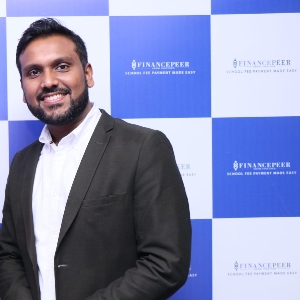Is Your Experience A Constraint For Your Growth? Experience is an interpretation you create, and often you hold that interpretation as a fact.
By Sameer Dua
Opinions expressed by Entrepreneur contributors are their own.
You're reading Entrepreneur India, an international franchise of Entrepreneur Media.

About 5 years ago, I wrote a blog post presenting an interpretation that sometimes your experience may be your biggest constraint. I stopped at that. In this article, I have suggested steps to ensure that your experience works for you, rather than be a constraint.
Let's begin by looking at what experience means. You can have the same event take place, and if there are three persons observing that event, chances are all three of them will have a different experience. So, experience is an interpretation you create, and often you hold that interpretation as a fact. The fact was the"event', the experience was the "interpretation' of that event.
Let me give you an example: Let's say a group of Indians set up a company in the US. In the first few years, the company does well, and then for some reason, it goes bust. There are three Indian directors at the time of the company going bust (the company going bust is the event).
One of the three directors makes an interpretation: "Doing business is risky," and hence decides that he will never set up his own business ever again.
The second director makes a slightly different interpretation. He states, "Doing business in a foreign country is risky and decides that he will hereon only operate in his own country." And finally, the third director has a completely different interpretation. His interpretation is: "We screwed up! The next time, I will need to look for signs for serious threats to the business."
The same event has three different interpretations and three different experiences. These directors are unaware of the fact that their experience in that moment almost set up their default future.
Here are possible future of these three directors:
- Director 1, given his "experience', he will never set up another business
- Director 2, given his "experience', he will never set up a business in a foreign country
- Director 3, given his "experience', will set up a new business, and perhaps in a foreign country — but will have his radar up for threats.
These directors may also give advice to others, based on their experiences, and will proudly back up their experiences with the event of the business in the US going bust. They are blind to how their experiences shape their future.
This happens all the time, and often, we are blind to this phenomenon working in the background guiding and often creating our default futures. A dealer manager of an automobile organization that I actively work with had shared his experience while working with a particular dealer, whom he called "inefficient and useless'. The default future, with such an assessment (and experience), is this relationship would not work (and for the period it would, it would not thrive). The dealer manager after 2 years eventually decided to terminate the contract with that dealer. Within a month, the dealer was snapped up by competition. The competitor did not experience this dealer as "inefficient and useless'.
And this dealer went on to do record sales. These are just a few among many examples that I come across regularly in my work of how our experience becomes a constraint in our growth.
Here are the three points you need to keep in mind to ensure your experience works for you, and does not become a barrier.
1. Become Aware: While experience is critical in the "action domain', it sometimes becomes a constraint in the domain of 'looking for new possibilities'. The first step is to recognize that it is our experience that creates a certain lens through which we see the world. This lens may assist us in certain places – but is this lens also limiting our possibilities? This simple awareness that "my experience may be limiting me', can open up a whole new world of possibilities — as long as you are ready to explore that world of possibilities
2.Question your experience: As I stated above, experience is an interpretation; however, we hold our experience as a fact. Historical events cannot be changed. However, our interpretation of these events can. Your experience may tell you "this thing cannot be done". And this "experience' will only limit your ability to "get this thing done".Once you become aware, question your experience. The question is not "whether this thing can be done?" the question to explore is "how can I get this thing done" — particularly if the results matter to you.
3. Be connected to "what result do I want to generate" moment-to-moment: This is the key point. As long as you are connected to the "result you want to generate', you will keep looking for ways to generate that result, independent of your experience. Often people make assessments that are not aligned to the results they want to generate and worse, they are unaware that they are making these assessments.
History is evidence of the fact that breakthrough ideas in businesses do not come from the same industries. If you continue to do what has always been done, you will continue to get the same result. If you want a breakthrough result, you need to come out of your comfort zone (read experience), and try ideas that have never been tried.












